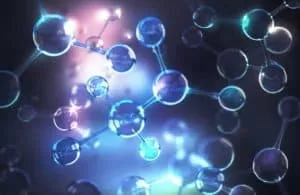What is Phytotherapy?
Phytotherapy, often known as herbalism, uses plants or herbs as medicines to treat or prevent diseases. Phytotherapy is a science-based medical practice, as opposed to more traditional techniques like medical herbalism, which is founded on an empirical appreciation of medicinal herbs and is frequently tied to traditional knowledge.
Background of Phytotherapy
Henri Leclerc, a French physician, coined the word “phytotherapy” and published several editions of the Précis de phytothérapie: Phytotherapy Handbook in 1922.
Rudolf Fritz Weiss, a German herbalist and physician, published Herbal Medicine in 1960, becoming the standard German textbook on the subject. Both Leclerc’s and Weiss’ approaches had a major emphasis on what became known as Evidence-Based Medicine.
Some Examples of Phytotherapies for cancer
• Green tea may help fight malignant tumors or improve diabetes-related retinopathy by reducing nausea and vomiting symptoms.
• Green tea may also help to prevent new blood vessel growth (angiogenesis)
- Several studies prove the effectiveness of ginger against numerous cancer entities.
- Curcumin has been well studied in laboratory studies and shows positive effects, and mechanisms of action for anti-tumor effects are well described. Curcumin is also a component of the Fenbendazole Protocol).
What does Phytotherapy Treat?
People have traditionally employed phytotherapy to treat many acute and chronic health issues. Cancer, musculoskeletal discomfort, memory loss, and autoimmune illnesses are just a few examples.
Risks of Phytotherapy
Plant- or herb-based remedies may be hazardous and cause illness; they may also contain harmful chemicals like heavy metals or germs. Plant- or herb-based therapies may:
• Raise the likelihood of developing certain diseases
• Interact with other drugs, resulting in serious side effects
• Dosage directions and components are unclear.
• Decrease the efficacy of other drugs
• Allergies, including life-threatening allergic reactions like anaphylaxis
Possible Side Effects of Phytotherapy
· Chest pain
· Diarrhoea
· Dizziness
· Fainting
· Headache that lasts
· Heart palpitations
· Nausea and vomiting
· Shortness of breath (dyspnoea)
· Skin rash (contact dermatitis)
Consumption Methods
Phytotherapy is available in various forms, including tinctures (concentrated extracts), pills or capsules, and teas. They can also be used directly on the skin as ointments or compresses.
Dr. To, Obrien of the Botanical Mind Clinic, gives insights on phytotherapy and outlines the efficacy and risks of this therapy in this video:









